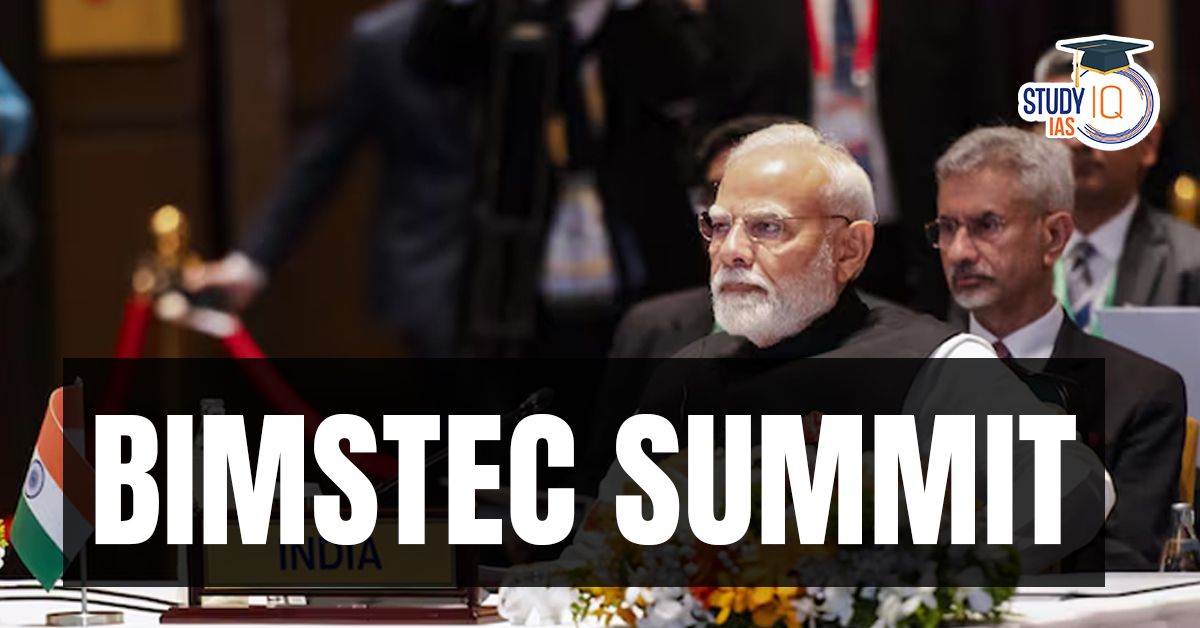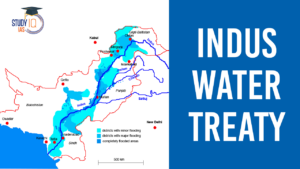Table of Contents
The 6th BIMSTEC Summit 2025, held in Bangkok, Thailand, marked a pivotal moment in the history of the Bay of Bengal Initiative for Multi-Sectoral Technical and Economic Cooperation (BIMSTEC). This summit not only showcased the bloc’s commitment to fostering regional cooperation but also saw the launch of India-led capacity-building initiatives aimed at enhancing the capabilities of member nations across various sectors. The summit provided a platform for strengthening ties between South Asian and Southeast Asian countries and set the stage for expanded economic, security, and cultural collaboration.
Key Highlights of the 6th BIMSTEC Summit 2025
Prime Minister Narendra Modi, who represented India at the summit, made several landmark announcements aimed at boosting institutional capacities and regional integration. These initiatives reflect India’s strong leadership role in BIMSTEC and its commitment to sustainable development, technological innovation, and human resource development within the region.
Major Announcements by PM Modi
-
BIMSTEC Centres of Excellence
India will establish several Centres of Excellence focusing on the following sectors:-
Disaster Management
-
Sustainable Maritime Transport
-
Traditional Medicine
-
Research and Training in Agriculture
These centers will serve as regional hubs for knowledge sharing, training, and research.
-
-
BODHI Programme (BIMSTEC for Organized Development of Human Resource Infrastructure)
A new initiative aimed at skilling the youth of the region. The program will provide training and scholarships to professionals, students, researchers, and diplomats. This initiative aims to develop human capital and empower the younger generation of BIMSTEC nations with critical skills for the future. -
Digital Public Infrastructure Pilot Study
PM Modi announced that India will lead a pilot study to assess the digital infrastructure needs of BIMSTEC countries. The goal is to foster digital connectivity and enhance technological integration, especially in sectors like e-governance, digital education, and telemedicine. -
Cancer Care Capacity Building
As part of India’s commitment to improving healthcare capacity, PM Modi proposed a regional capacity-building program focused on cancer care. This initiative will help to enhance the medical infrastructure and provide specialized training for medical professionals in the BIMSTEC region. -
BIMSTEC Chamber of Commerce
PM Modi proposed the establishment of a BIMSTEC Chamber of Commerce aimed at fostering business dialogue and regional trade. This body will serve as a permanent platform to encourage economic collaboration and remove barriers to trade across BIMSTEC nations. -
Annual BIMSTEC Business Summit in India
To further economic integration, PM Modi proposed that India will host the BIMSTEC Business Summit every year. This event will serve as a space for entrepreneurs, industry leaders, and policymakers to engage in discussions about cross-border trade, investment opportunities, and regional economic growth.
Regional Significance of the 6th BIMSTEC Summit 2025
The summit, held amidst geopolitical shifts and challenges in the Bay of Bengal region, was a key moment for reinforcing regional solidarity and cooperation. In his speech, PM Modi described BIMSTEC as a vital bridge between South Asia and Southeast Asia, emphasizing the importance of fostering mutual respect and enhancing regional connectivity.
-
BIMSTEC as a Bridge Between South Asia and Southeast Asia
The summit underscored the importance of BIMSTEC as a platform that not only connects countries from different sub-regions but also facilitates cross-border trade, technological collaboration, and cultural exchange. With a combined population of 1.6 billion people, BIMSTEC has the potential to become a major economic bloc in the coming decades. -
Addressing Common Challenges
BIMSTEC nations face shared challenges such as natural disasters, climate change, security threats, and economic inequality. The 6th summit highlighted the importance of regional cooperation in addressing these issues. For example, the BIMSTEC Centres of Excellence will focus on disaster management, a pressing concern for many member nations due to the region’s vulnerability to cyclones, floods, and earthquakes. -
Geopolitical Impact
With the participation of countries like India, Myanmar, Bangladesh, and Thailand, the summit also had important geopolitical ramifications. It reaffirmed BIMSTEC’s role as a counterbalance to the growing influence of China in the region, especially in areas like infrastructure development and trade routes.
Key Outcomes from the 6th BIMSTEC Summit
The 6th BIMSTEC Summit 2025 was a significant step toward enhancing regional cooperation and economic integration. Below are the key outcomes and agreements made during the summit:
1. Bangkok Vision 2030
The summit saw the adoption of the Bangkok Vision 2030, a strategic plan that sets out the goals for regional prosperity, peace, and development by 2030. The vision includes key areas such as trade facilitation, energy cooperation, and sustainable development.
2. BIMSTEC Maritime Transport Agreement
A crucial agreement was signed to improve maritime transport in the Bay of Bengal. The Maritime Transport Agreement will help improve shipping routes, connectivity, and trade facilitation between BIMSTEC countries, promoting intra-regional trade.
3. BIMSTEC Eminent Persons Group Report
The BIMSTEC Eminent Persons Group report was adopted during the summit. This report outlined important reforms to streamline the functioning of BIMSTEC, improve coordination among member states, and ensure the timely implementation of regional initiatives.
BIMSTEC’s Growing Role in Regional and Global Affairs
The 6th BIMSTEC Summit solidified BIMSTEC’s growing influence as an emerging platform for regional cooperation in South and Southeast Asia. It is expected that BIMSTEC will continue to play a pivotal role in shaping the future of Asian geopolitics, focusing on issues such as trade integration, maritime security, climate change, and human resource development.
Regional Security Cooperation
The need for greater security cooperation was emphasized at the summit, particularly in the face of common security threats such as terrorism, cyber threats, and human trafficking. The member nations agreed to work more closely on counter-terrorism efforts and border management.
Economic Cooperation
BIMSTEC’s vision for economic integration includes the establishment of trade corridors, connectivity projects, and the removal of trade barriers to facilitate greater cross-border trade.
Conclusion
The 6th BIMSTEC Summit 2025 was a landmark event in strengthening the BIMSTEC partnership. With the announcement of key initiatives like the BODHI programme, the Maritime Transport Agreement, and the creation of Centres of Excellence, India reaffirmed its leadership role in the Bay of Bengal region. The summit underscored the importance of regional collaboration to address common challenges and seize new opportunities for growth.
As BIMSTEC countries continue to work together to build a more prosperous and secure future, the Bangkok Vision 2030 will serve as a guiding framework for regional cooperation, ensuring that the Bay of Bengal remains a hub of economic activity, sustainable development, and peaceful cooperation.


 Indus Water Treaty 1960 Suspended by Ind...
Indus Water Treaty 1960 Suspended by Ind...
 5 Years of SVAMITVA Scheme and Its Benef...
5 Years of SVAMITVA Scheme and Its Benef...
 Places in News for UPSC 2025 for Prelims...
Places in News for UPSC 2025 for Prelims...





















